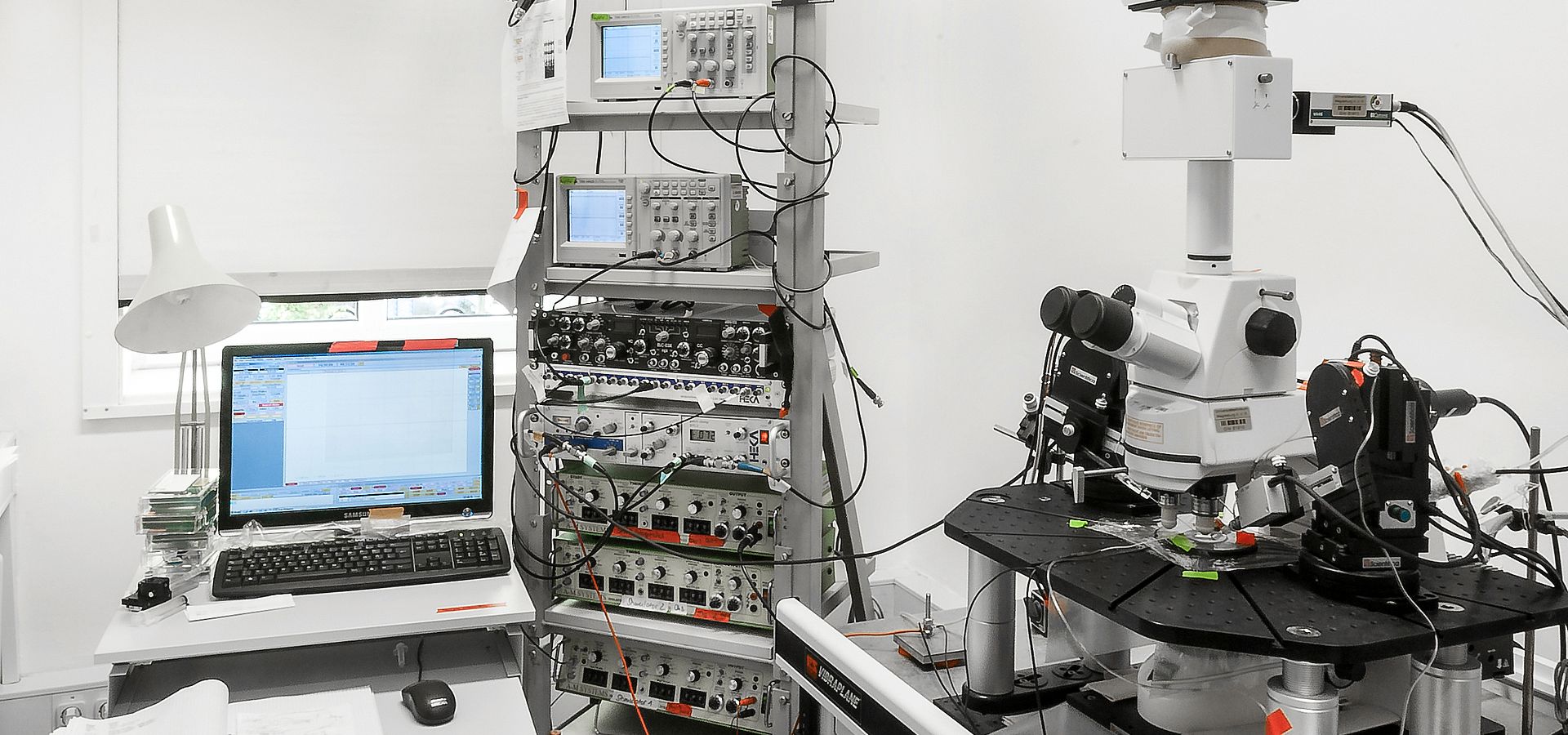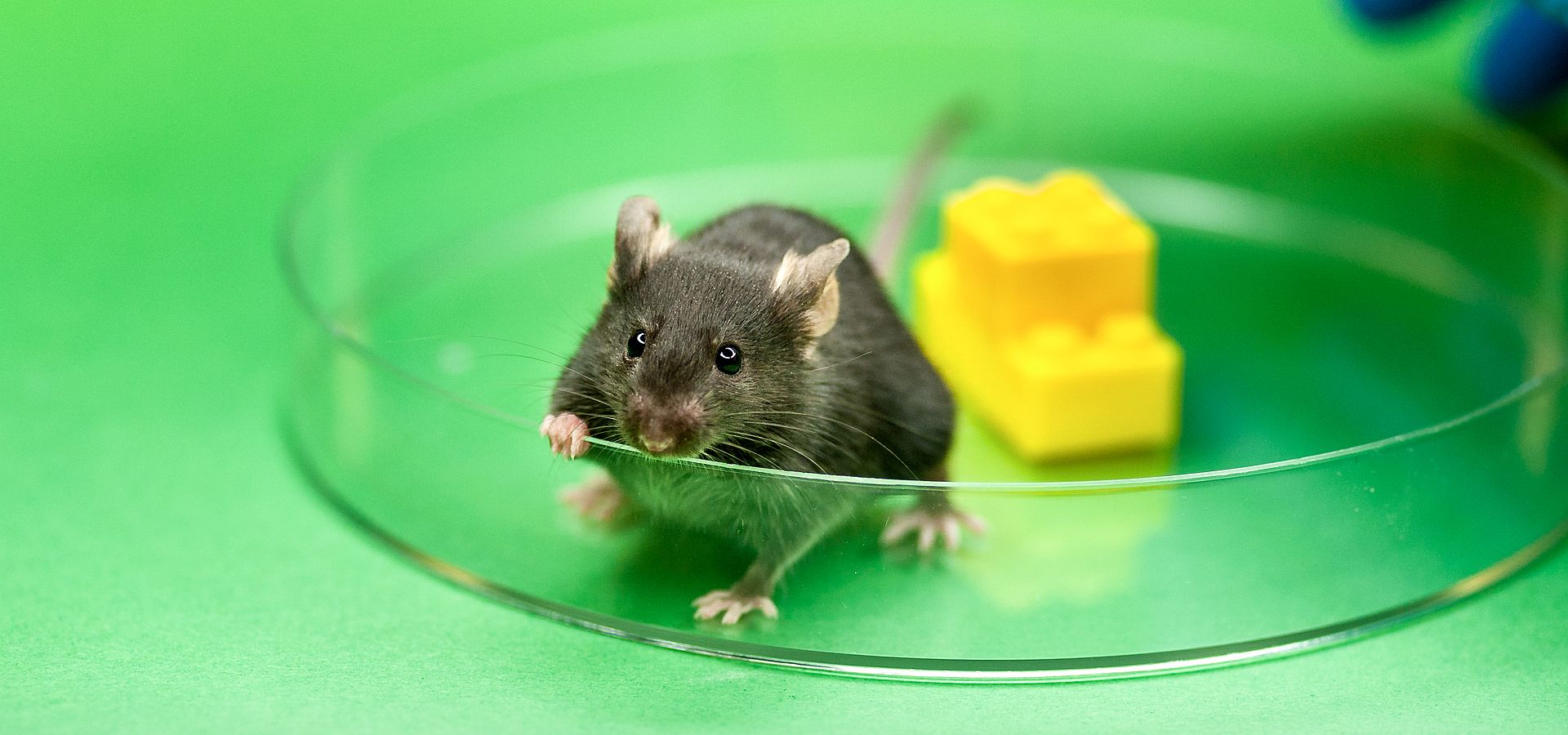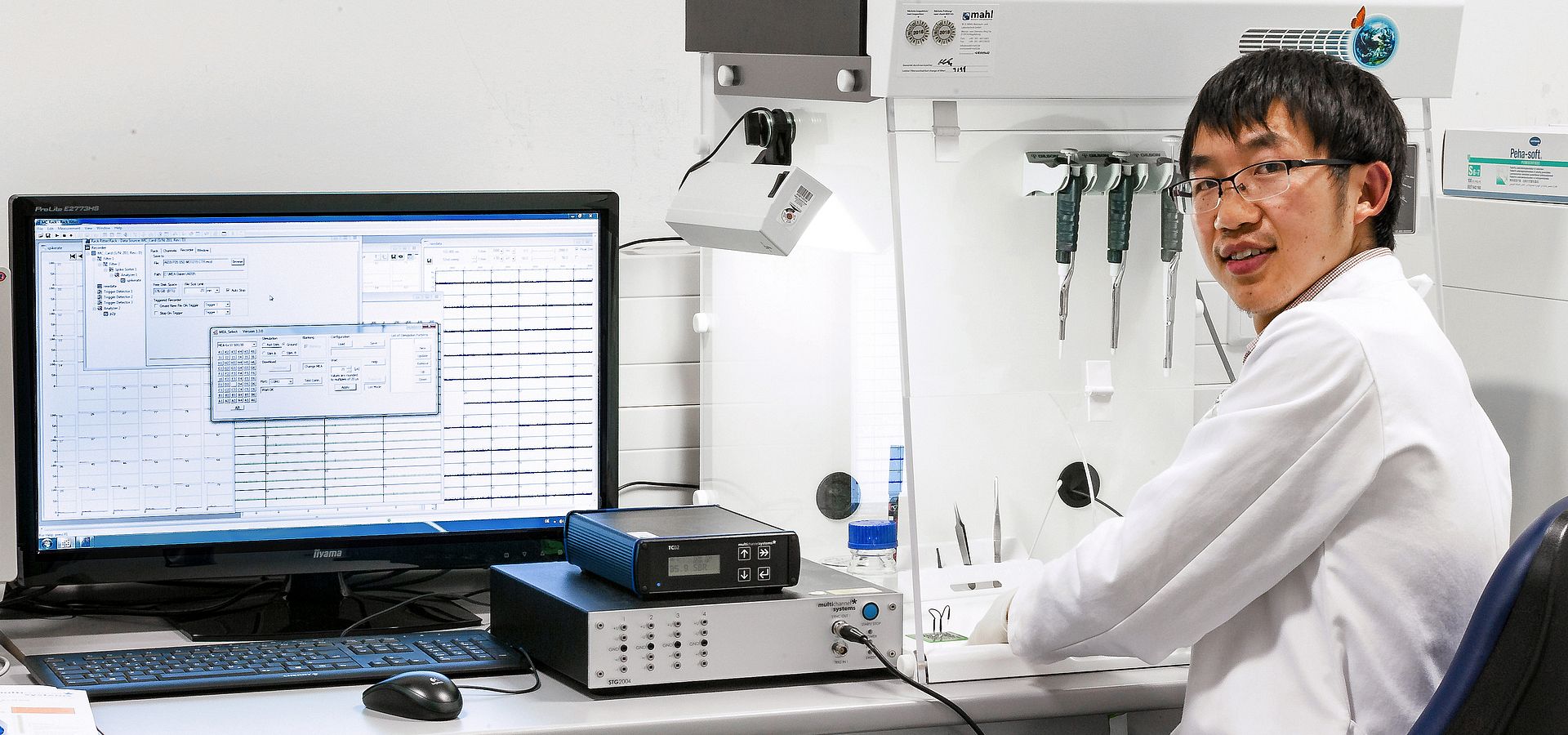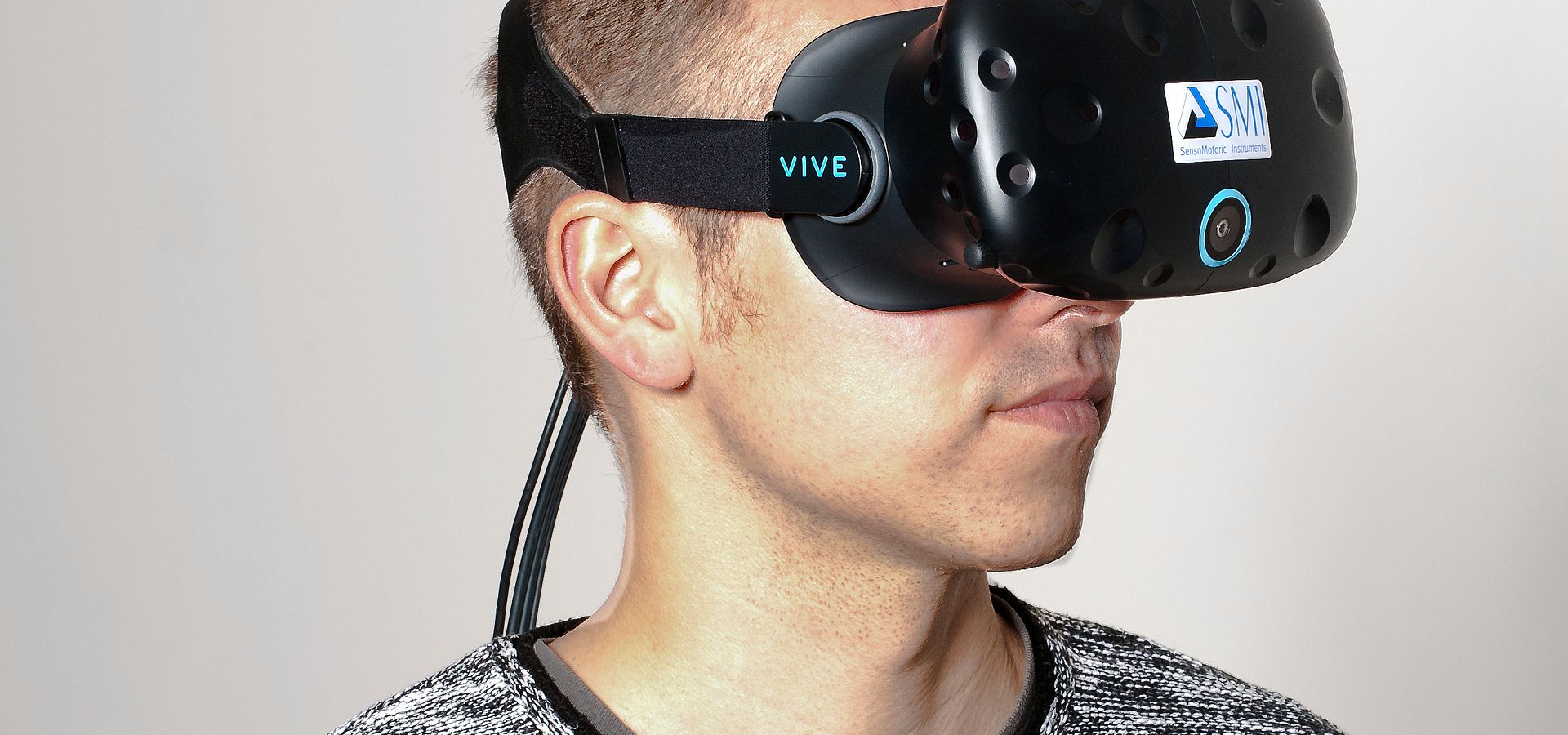Goals
The “MSc Integrative Neuroscience” is an interdisciplinary research degree offered by the Otto-von-Guericke University Magdeburg. It prepares students for doctoral studies and a professional career in neuroscience, is taught entirely in English, and is targeted equally at German and international students.
Advantages
Integrative
The MSc programme focuses on the neural basis of animal and human behaviour and covers an exceptionally wide range of neuroscience approaches, including molecular, cellular, systems, behavioural, cognitive, and theoretical neuroscience. It also emphasizes computational and theoretical skills, which are becoming increasingly indispensable.
Accessible
You may enter the programme with a variety of undergraduate degrees, including degrees in life science, biology, biotechnology, medicine, physics, experimental psychology, engineering, or chemistry. If you show prior credits in biochemistry and/or physics, you may even enter with a degree in cognitive science, psychology, philosophy, health science, economics, or social science.
Successful
Participants hail from Europe (50%), Middle East (15%), South Asia (15%), East Asia (10%), Americas (8%) and Africa (2%). The rate of course completion is 95%. After graduation, 75 % of programme graduates pursue doctoral research in neuroscience. On average, 30% of our graduates remain in Magdeburg, 40% move to other German research centers, and 20% relocate to other institutions in Europe or North America.
Advanced
Magdeburg is one of the newest and largest centers for neuroscience research in Germany and Europe. More than 50 independent groups pursue advanced research in integrative neuroscience at different institutions, including Otto-von-Guericke University, the Leibniz Institute of Neurobiology, German Center for Neurodegenerative Diseases, Centre for Advanced Imaging, Max-Planck Institute for Complex Dynamics and others. These groups are associated in the “Center for Behavioural Brain Science”, which supports the MSc Integrative Neuroscience programme and many other activities at the doctoral and post-doctoral level.
Affordable
In our state (Saxony-Anhalt), university education is free to everyone, including international students. No tuition and only minimal fees are charged. Due to this enlightened policy, university study is comparatively affordable, with current fees of 94,50 Euro per semester and living costs of 550 Euro to 850 Euro per month.
Philosophy
Integrative neuroscience considers neural components in their functional context. All levels of analysis are of interest: How do molecular and cellular components build functioning neurons and synapses? How do brain cells work together to form operational circuits? How do circuits jointly generate behavior and cognition? How are individual brains shaped by their interaction with other brains and with the natural environment?
The integrative study of the nervous system involves newer developments such as functional brain imaging, application of molecular biology, genetics and immunology, as well as more traditional areas like neurophysiology, neuroanatomy, animal behaviour, or psychophysics. In addition, neural modelling, and quantitative analyses are growing rapidly in importance. Accordingly, the programme introduces students to a wide variety of techniques from different disciplines.
The MSc Integrative Neuroscience programme opens to its students almost the entire spectrum of advanced neuroscience research. This includes animal behaviour and neurophysiology, human cognition and functional brain imaging, numerous advanced techniques such as spectroscopy, optogenetics, two-photon microscopy, molecular dynamics, and more, as well as related fields such as medical neuroscience, neuroprosthetics, neuro-inspired engineering, and neuroeconomics.
The MSc Integrative Neuroscience programme provides a broad foundation in the basic areas of neuroscience. This includes molecular and cellular neuroscience, systems and behavioural neuroscience, as well as theoretical and computational neuroscience. Students take core courses in all of these areas and choose from a range of advanced courses. They perform practical or laboratory exercises in all core areas and spend several weeks each in three research laboratories. The wide range of areas and requirements makes for an intensive and rewarding study experience.
History
Shortly after German reunification, Saxony-Anhalt chose neuroscience as a particular research focus for Magdeburg, in order to capitalize on the highly regarded Leibniz Institute of Neurobiology, LIN. Additional neuroscience research groups were recruited in the Medical Faculty (Neurology, Neurophysiology, Neurobiology), the Faculty of Natural Science (1994 Psychology, 1998 Biology), the Center for Advanced Imaging (2001), and the Helmholtz Center for Neurodegenerative Diseases, DZNE (2014). Investment in additional facilities included the two Centers for Neuroscience Innovation and Technology, ZENIT I and I (2001 and 2006), a new building for the Institute of Biology, IBIO (2008), and a new building for Leibniz Institute of Neurobiology, LIN (2014). The functional imaging facilities are perhaps the most extensive in Europe (7T MRI, five 3T MRI, SPECT, exclusively for research). To date the total investment of State, Federal, and European funding exceeds 150 M€.
Currently, more than 50 neuroscience research groups are active in Magdeburg and are informally associated in the Center for Behavioral Brain Sciences, CBBS. Each year, several dozen doctoral degrees are awarded, several hundred research papers are published, and some tens of millions of research funding are raised in the area of neuroscience in Magdeburg.
In 1997, the Otto-von-Guericke University offered the first degree programme in neuroscience in Germany. This “Diplom Neurobiologie/Neurowissenschaften” remained exemplary and successful over more than a decade. The current “MSc Integrative Neuroscience” programme, which is aimed equally at German and international students, started in 2008 and is updated continuously. The programme is administered by the Faculty of Natural Sciences and the Medical Faculty, and sponsored by the Center for Behavioral Brain Sciences, CBBS. Its lecturers are selected from all neuroscience institutions, including the Leibniz Institute of Neurobiology.
Teaching is concentrated in the Institute of Biology, IBIO, building on the medical campus, which houses the programme office, lecture rooms, teaching laboratories, a comfortable student lounge, a student kitchen and a lunch room.




